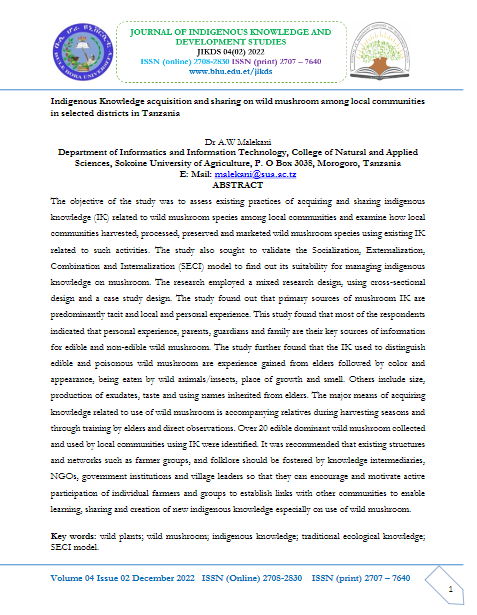
Indigenous Knowledge Acquisition and Sharing on Wild Mushroom Among Local Communities in Selected Districts in Tanzania
Publication Year: 2022
Author(s): Dr Malekani AW
Abstract:
The objective of the study was to assessexisting practices of acquiring and sharing indigenous knowledge (IK) related to wild mushroom species among local communitiesand examine how local communities harvested, processed, preserved and marketed wild mushroom species using existing IK related to such activities. The study also sought to validate the Socialization, Externalization, Combination and Internalization (SECI)model to find out its suitability for managing indigenous knowledge on mushroom. The research employed a mixed research design, using cross-sectional design and a case study design. The study found out that primary sources of mushroom IK are predominantlytacit and local and personal experience. This study found that most of the respondents indicated that personal experience, parents, guardians and family are their key sources of informationfor edible and non-edible wild mushroom. The study further found that the IK used to distinguish edible and poisonous wild mushroom are experience gained from elders followed by color and appearance, being eaten by wild animals/insects, place of growth and smell.The major means of acquiring knowledge related to use of wild mushroom is accompanying relatives during harvesting seasons and through training by elders and direct observations.
Source of Publication: Journal of Indigenous Knowledge and Development Studies
Vol/Issue: 4(2)
Country: Tanzania
Publisher/Organisation: Journal of Indigenous Knowledge and Development Studies
URL:
http://213.55.95.79/index.php/JIKDS/article/view/4229/3059
Theme: Traditional/ Indigenous Knowledge | Subtheme: Food Production



